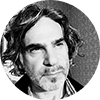Nothing great has been discovered without taking risks…
Fabulous failures tend to generate phenomenal innovations. So why, in an era where we value innovations, do we no longer take risks?
I believe the problem stems from our constant quest to generate sales, but not necessarily value. I have always believed that in business our duty is to drive and build value for shareholders. But lately it seems that many organizations are solely focused on this quarter’s numbers.
Decisions we implement to “make the numbers” don’t always build long-term value. We have also made a habit of incentivizing our people to sell for short-term results. This is not only true for sales folks, but also for our CEOs. It’s an endless cycle. Those who show the best immediate results get the most money thrown at them. We have to do better year after year without hesitation. It is rare that the “street” cuts us a break for years in which we choose to invest.
With all this demand for results, how could we not choose to go the path of the sure thing? Now, I don’t advocate going around willy-nilly, spending without a plan; but I would think that there are those who are much smarter than me, who can figure out how to work a percentage of “failure” into the business model. Of course there are some organizations that do take calculated risks and are able to reap the rewards. What would happen if we totally abandoned risk-taking in pharma and biotech? Innovation in medicine and healthcare would come to a screeching halt. As a society, we can’t afford for this to happen. We need discovery. We need advancement in medicine and diagnostics. Plainly, we need to take those risks. Why don’t we cut the companies a break? What if we told them that it’s okay to deliver only 3% growth. I know as a shareholder in many medical-related companies, I would be willing to continue to buy shares for the good of society, giving them a bit of slack so they can take risks and make discoveries. I’m in no way a socialist, but isn’t it possible to have lackluster results some years and stellar results in others, and not be seen in a negative light?
RELATED TOPICS

Ken is a great deal more than just the president of a medical communications company. He is something of a hybrid. He’s part marketing manager, part creative director, and part copywriter. To the chagrin of his peers—but to the delight of his clients—Ken is a consummate perfectionist. As a former creative director for a high-end consumer agency, he challenged his creative teams to go beyond the mundane to produce work with real creative impact, something he’s just as fervent about today. From producing and directing TV commercials, to launching DTC and Rx-to-OTC switches, Ken brings his clients a world of experience in OTC pharmaceuticals as well as business, lifestyle, and high-end consumer products and services. Whether huddled with clients behind a mirror in a market research center in Houston, facilitating a strategic workshop in Madrid, or developing a global campaign either in the New Jersey or California office, Ken is always fully engaged, bringing “bestness” to all areas of his hectic but full life.
